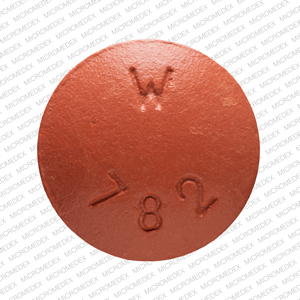Carbidopa/entacapone/levodopa and Alcohol/Food Interactions
There are 2 alcohol/food/lifestyle interactions with carbidopa / entacapone / levodopa.
Levodopa Food/Lifestyle
Moderate Food Interaction
Consumer information for this interaction is not currently available.
GENERALLY AVOID: Alcohol may potentiate some of the pharmacologic effects of levodopa. Use in combination may result in additive central nervous system depression and/or impairment of judgment, thinking, and psychomotor skills.
MONITOR: Limited clinical data suggest that high protein content in the diet may reduce or cause fluctuations in the clinical response to oral and enteral formulations of levodopa in patients with Parkinson's disease. Proposed mechanisms include delayed gastric emptying, decreased levodopa absorption when taken with a protein rich diet, and competition with certain amino acids for transport across the gut wall and/or the blood brain barrier. Data have been conflicting. Clinical studies have variously reported no effect, reduced levodopa absorption with low-protein meals, reduced effects of oral and enteral formulations of levodopa with high daily protein intake, and no differences compared to fasting with high-protein meals. Neuroleptic malignant-like symptoms were reported in a patient with Parkinson's disease who was receiving pramipexole, entacapone, and immediate-release levodopa/carbidopa, after the protein content of his enteral feedings via nasogastric tube was increased from 0.88 g/kg/day to 1.8 g/kg/day; symptoms improved after the protein was reduced to 1 g/kg/day and bromocriptine was administered. Another patient receiving immediate-release carbidopa/levodopa, pramipexole, and entacapone experienced severe rigidity after initiation of continuous enteral nutrition via oral gastric tube containing 1.4 g/kg/day of protein; his Parkinsonian symptoms improved after the protein content was reduced to 0.9 g/kg/day, the feeding was changed to bolus feedings, and the levodopa was administered between boluses.
MANAGEMENT: In general, alcohol consumption should be avoided or limited during treatment with CNS-depressant agents. Until more data are available, it is advisable to avoid large fluctuations in daily protein intake and to monitor patients for altered effects of oral and enteral levodopa formulations if the protein content of the diet is increased.
Entacapone Food/Lifestyle
Moderate Food Interaction
Consumer information for this interaction is not currently available.
GENERALLY AVOID: Alcohol may potentiate some of the pharmacologic effects of CNS-active agents. Use in combination may result in additive central nervous system depression and/or impairment of judgment, thinking, and psychomotor skills.
MANAGEMENT: Patients receiving CNS-active agents should be warned of this interaction and advised to avoid or limit consumption of alcohol. Ambulatory patients should be counseled to avoid hazardous activities requiring complete mental alertness and motor coordination until they know how these agents affect them, and to notify their physician if they experience excessive or prolonged CNS effects that interfere with their normal activities.
Switch to professional interaction data
Carbidopa/entacapone/levodopa drug interactions
There are 536 drug interactions with carbidopa / entacapone / levodopa.
Carbidopa/entacapone/levodopa disease interactions
There are 14 disease interactions with carbidopa / entacapone / levodopa which include:
- glaucoma
- cardiac disease
- neuroleptic malignant syndrome
- psychoses/depression
- glaucoma
- liver/renal
- melanoma
- reactive airway disease
- depression
- sleep disorders
- hypotension
- psychosis
- hepatic impairment
- GI bleeding
More about carbidopa / entacapone / levodopa
- carbidopa/entacapone/levodopa consumer information
- Check interactions
- Compare alternatives
- Pricing & coupons
- Reviews (10)
- Drug images
- Side effects
- Dosage information
- During pregnancy
- Drug class: dopaminergic antiparkinsonism agents
- En español
Related treatment guides
Drug Interaction Classification
| Highly clinically significant. Avoid combinations; the risk of the interaction outweighs the benefit. | |
| Moderately clinically significant. Usually avoid combinations; use it only under special circumstances. | |
| Minimally clinically significant. Minimize risk; assess risk and consider an alternative drug, take steps to circumvent the interaction risk and/or institute a monitoring plan. | |
| No interaction information available. |
See also:
Further information
Always consult your healthcare provider to ensure the information displayed on this page applies to your personal circumstances.


